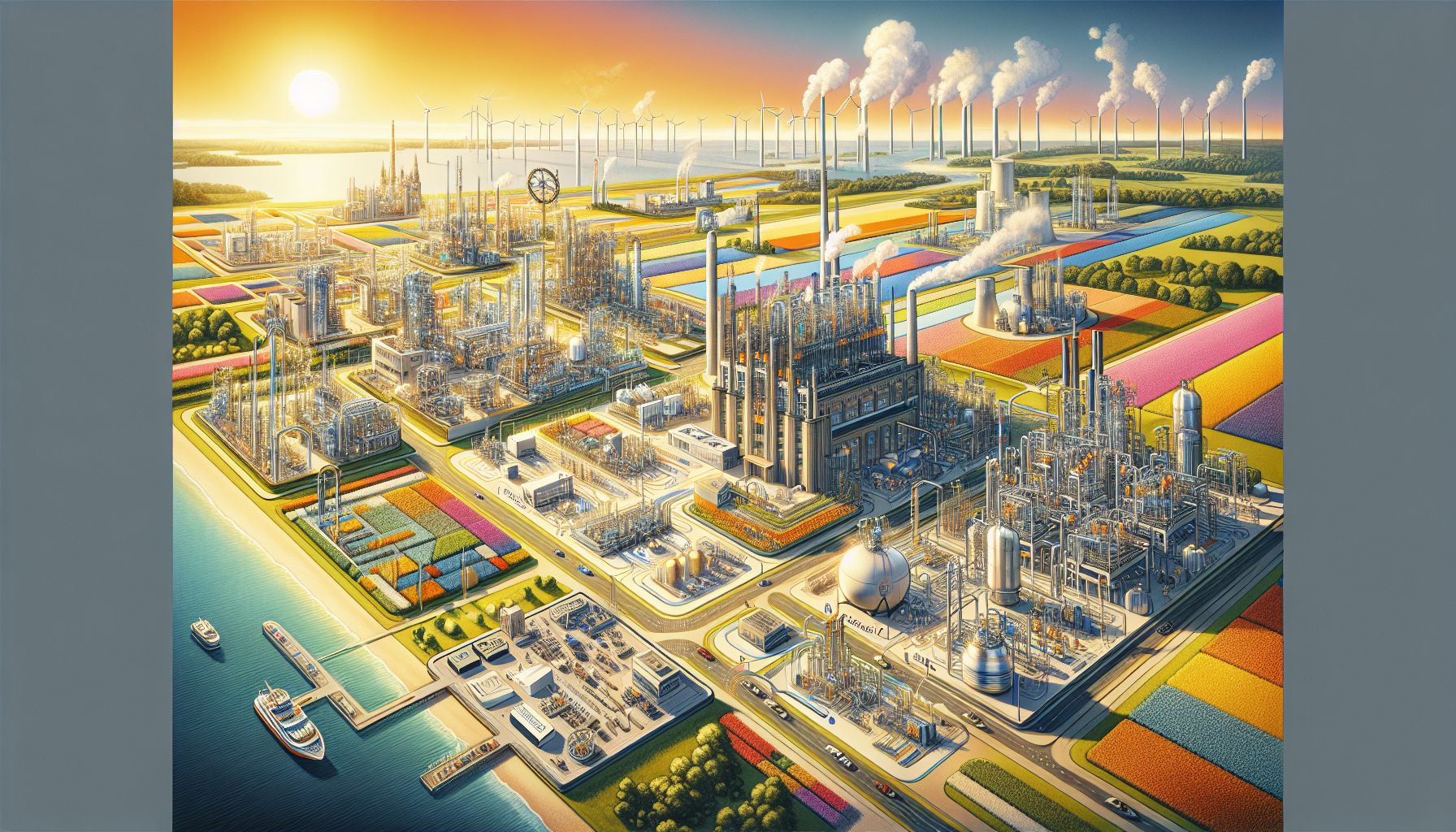€50 Million Boost for Sustainable Hydrogen Research in Europe

Leiden, Friday, 20 September 2024.
A groundbreaking research project on sustainable hydrogen production has launched with over €50 million in funding from NWO and industry partners. The initiative, involving 58 partners across multiple countries, aims to revolutionize green hydrogen technology and establish a robust Dutch supply chain for materials and systems.
Innovative Approaches to Green Hydrogen
The project, spearheaded by Professor Marc Koper from Leiden University under the Groenvermogen initiative, focuses on electrochemical hydrogen production at higher pressures. This method promises to enhance the efficiency and sustainability of hydrogen production by leveraging advanced electrolysis techniques. Electrolysis involves converting water into hydrogen and oxygen gas using electrodes and an electric current in a salt solution, a process that the consortium aims to optimize for large-scale, cost-effective green hydrogen production.
Key Focus Areas and Interdisciplinary Collaboration
One of the critical aspects of the project is the study of the degradation of electrochemical cell components. Researcher Rik Mom from Leiden University highlights that cell degradation is a significant factor making green hydrogen expensive. Addressing this issue can substantially reduce costs and improve the longevity of hydrogen production systems. The consortium, named HyPRO, consists of ten universities, five universities of applied sciences, two research institutes, and over forty companies from countries including the United Kingdom, Italy, Denmark, France, and Germany. This interdisciplinary collaboration is crucial for developing innovative solutions and ensuring the project’s success.
AI and Data Analysis for Enhanced Efficiency
Professor Thomas Bäck from LIACS underscores the project’s societal impact, contributing expertise in data analysis and artificial intelligence (AI) to optimize hydrogen production. Researcher Yingjie Fan is set to develop and implement AI methods to accelerate hydrogen technology development and reduce associated costs. Fan also aims to apply for additional subsidies for renewable energy, reinforcing the commitment to the green energy transition and a sustainable future. The integration of AI in this project is expected to streamline the development process and enhance the efficiency of hydrogen production technologies.
Formation and Goals of the HyPRO Consortium
The HyPRO consortium was formed during two intensive workshops where all parties collaborated to create a unified proposal. The primary goals include improving electrolysis technology for large-scale, cost-effective green hydrogen production and developing a Dutch supply chain for the necessary materials and systems. This cohesive approach is designed to foster innovation and ensure that the advancements made during the project are scalable and sustainable.
Global Implications and Future Prospects
The implications of this research extend beyond the Netherlands and Europe. As highlighted by international reports, the development of sustainable renewable hydrogen value chains is crucial for the global green energy transition. The production and trade of renewable hydrogen present significant economic opportunities, particularly in regions with high renewable potential. The HyPRO project aligns with these global trends, aiming to not only advance hydrogen technology but also contribute to the creation of sustainable international hydrogen value chains.

